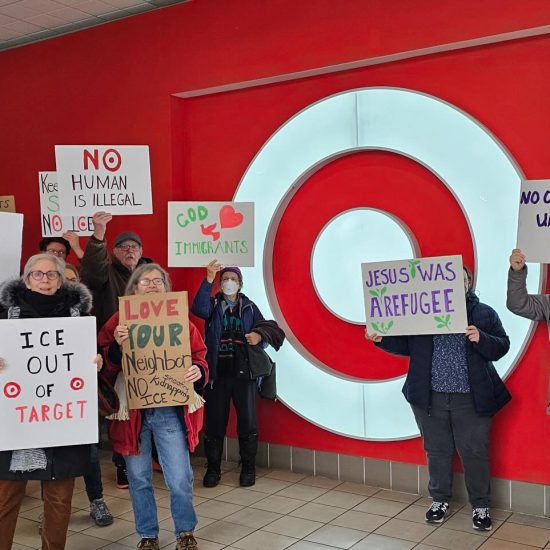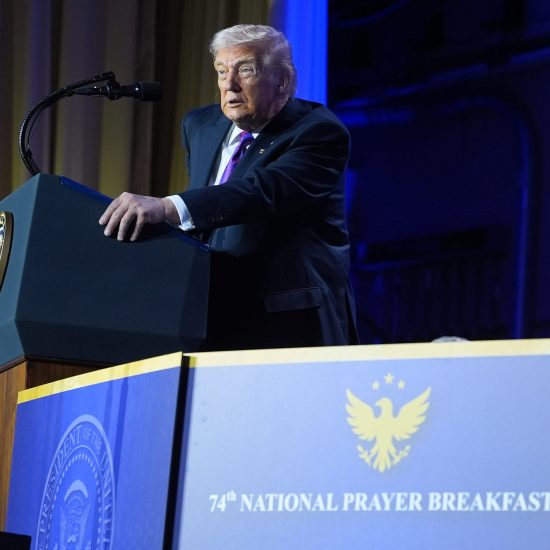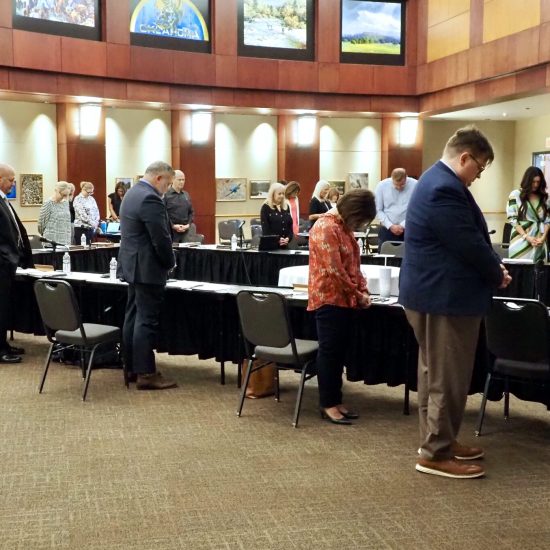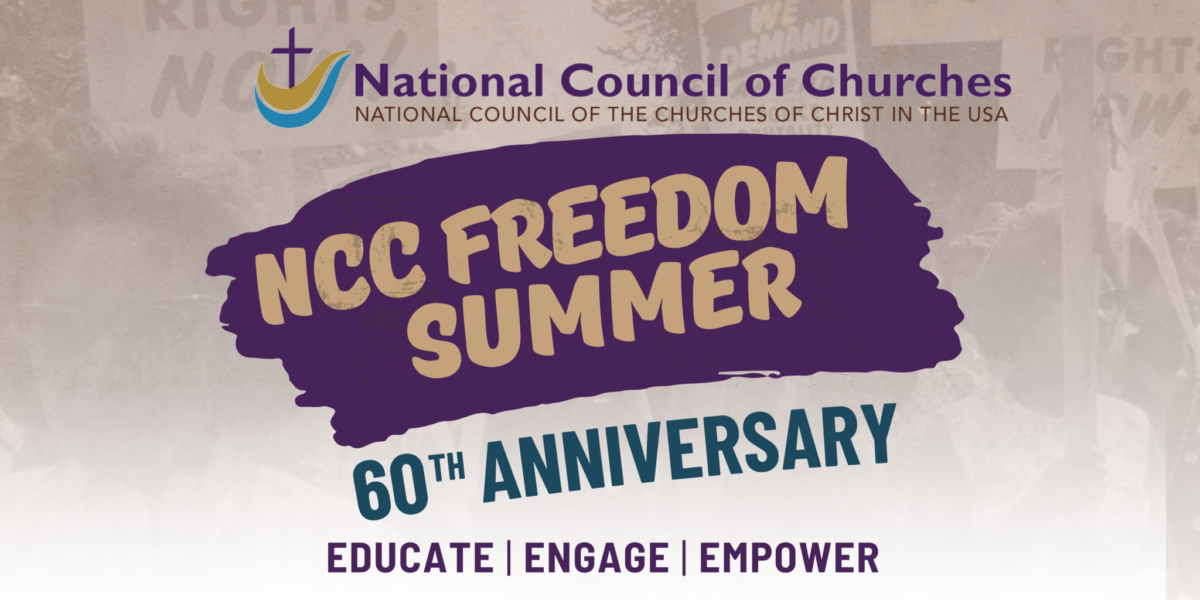
The National Council of the Churches of Christ in the USA (NCC), the largest ecumenical body in the United States, held Impact Week from June 17-21 featuring panel discussions with a number of notable leaders. They covered a wide range of pressing topics such as voter empowerment, navigating faith in the era of artificial intelligence, and reparations. The events culminated with the launch of NCC Freedom Summer, a civic engagement campaign commemorating the 60th anniversary of the 1964 Freedom Summer Project.
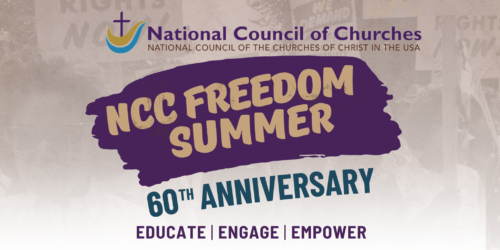
One of the panels was centered on international issues in countries that are often overlooked. Opening this panel, titled “Addressing Conflict Across the Globe: Armenia, Haiti, and Sudan,” moderator Dr. Antonios Kireopoulos, NCC associate general secretary, said these specific countries were chosen “because these, among others, are conflicts that receive little attention in the media, in our local communities, here in the U.S., and in the halls of Congress.”
Kireopoulos noted that the NCC has formally condemned the Russian invasion of Ukraine and has called for a ceasefire between Israel and Hamas.
“We wish today to lift up three conflicts that aren’t readily and continually on our radar screens,” he added.
The unresolved and dire situation in Armenia was explored by Simon Maghakyan who is the founder of Heritage Intel, a community scholar at the University of Denver, an investigative researcher, and a seasoned organizer. He began by noting that Armenia briefly made it into the news cycle last fall when Azerbaijan completely removed the entire indigenous Armenian population from Artsakh, or as it’s more internationally known, Nagorno-Karabakh. This disputed territory became part of Soviet Azerbaijan due to decisions, in part, made by Joseph Stalin.
“The entire population of 150,000 indigenous Christians in this region are now refugees,” Maghakyan emphasized.
He went on to document how entire villages, cemeteries, and historical churches — such as the early 19th century Saint John the Baptist Church — have been destroyed.
“A lot of Eastern Christians don’t see houses of worship and cemeteries only as places that are of gathering, right? Those are also places of memory, places of sacredness,” Maghakyan added. “Once you take their heritage away and eliminate its traces, it’s basically telling them there is no hope for your survival or your return to those lands.”
Then the discussion turned to political instability and the ensuing violence currently occurring in Haiti. This was explored by Charlot Lucien, board member of the Institute for Justice & Democracy in Haiti and the founder and director of the Haitian Artists Assembly of Massachusetts. He began by noting that when we hear about gang violence or presidential assassinations, we often lack the historical context to properly situate these problems.
“It’s painful to think about it, because people may know or may not know that Haiti is the first Black republic in the world, the second republic in the Americas after the U.S.,” Lucien lamented. “So I’m pointing out those historical facts to establish the huge gap between what has been in the past, what Haiti represented, and what we are seeing now.”
On top of colonial misdeeds that kept the country from full autonomy and wealth accumulation, Haiti has had to deal in recent years with earthquakes and floods that have decimated the already fragile infrastructure and institutions in Haiti, both government and civil society. This includes the healthcare system, public education, bridges and roads, and electricity plants that have been destroyed.
The final country the panel addressed, Sudan, was covered by Dr. Pauline Muchina, policy and advocacy director at the American Friends Service Committee and chair of the Africa Wellness Working Group at Advocacy Network for Africa. Since April 2023, over 15,000 people have died in Sudan and over 9 million people are currently displaced according to the United Nations while essential services and infrastructure have collapsed.
Muchina mentioned the staggering statistic that “in Darfur’s Zamzam refugee camp, a child dies every two hours because of malnutrition, hunger, malaria, and dengue. That is unacceptable. Sudan now faces the world’s largest displacement crisis.”
As with the previous two countries the panel discussed, this tragic situation is rooted in a complicated history, with competing forces vying for the control of Sudan amid long-standing political unrest and ethnic tensions. So the conflict is not a civil war in its traditional definition.
“We want you to understand that it is not only two generals fighting for power, but there are other external forces — external companies, external armies — that are actually keeping this war going,” Muchina added. “These nations [the United Arab Emirates, Iran, Russia, Egypt, and others] who are supplying arms to Sudan, who are actually even training some of the Sudan military, are doing it in order to have access to Sudan’s rich natural resources, including gold, oil, and farmland.”

Screengrab from the NCC panel “Addressing Conflict Across the Globe: Armenia, Haiti, and Sudan.”
Despite the weight of these tragedies, the group emphasized that they each have reasons to truly be hopeful.
“Human rights violations and instabilities may not be in the spotlight right away, or solutions will not come at the pace that we want them.” Maghakyan stated. “The violators … may get away for years and years, but I think the hard work and civil society engagements, including from actors like the NCC, do produce results in the long term.”
Lucien added that it is important to identify and pressure forces that have an interest in the production, distribution, and sales of weapons in places like Armenia, Haiti, and Sudan. He said that this means “reaching out to local networks in the U.S. through the churches or the advocacy groups in order to identify specific allies that could influence U.S. policies, as far as controlling how ammunitions and weapons leave the U.S.”
After echoing Lucien’s point and urging complicit American faith communities to do more to challenge the military-industrial complex, Muchina added, “We cannot have sustainable peace through military interventions. So we have to have a nonviolent approach. We need to build dialogs in our communities, and then we need to bring people to the negotiating table. We need to change people’s mindset in countries where people’s mindsets have been corrupted, we need to change the narrative so that we can actually have peace in our world.”

